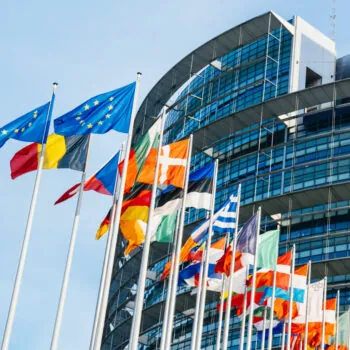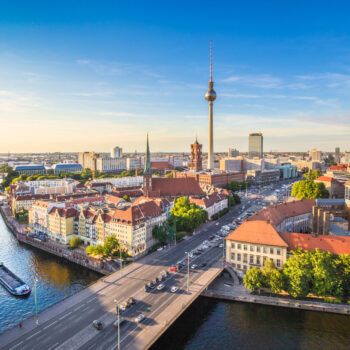A week ago, on May 14 the White House announced significant new tariffs on Chinese products in “strategic sectors” in the energy transition, such as steel and aluminum, semiconductors, electric vehicles, batteries, critical minerals, and solar cells.
These tariffs attempt to address growing concerns in Washington and the rest of the US around China’s dominance in the clean tech space, particularly in what Beijing calls the “new three” – Batteries, EVs, and Solar. They also largely represent a preventative measure, given that the White House estimates the tariffs would target $18bn, or less than 5% of total 2023 Chinese imports into the US.
The tariffs also represent a key challenge facing President Biden in balancing the need for clean tech now (which primarily comes from China) with the need to give American green tech the breathing room necessary to mature. This is especially true in an election year, where his main rival famously started a trade war, and many of the states Biden must win (including Michigan) have large manufacturing industries threatened by Chinese imports.
The tariffs are hardly a surprising move by the Biden administration, which is facing pressure not only from unions and voters in battleground states but also increasingly from the industries that are seeking to fend off Chinese competition. “The future of Electric vehicles should be made in America,” President Biden asserted on the day the tariffs were announced and added that his Administration seeks “fair competition with China, not conflict.” Also in attendance were Senator Debbie Stabenow and Representative Debbie Dingell, both from Michigan, further emphasizing the relationship between the tariffs and Detroit. For those who didn’t grow up in the state, Michigan is the spiritual home of the American auto industry, with General Motors, Ford, and Chrysler (Stellantis) all headquartered in or around Detroit. In 2022, the state represented 21% of total US auto production, and the auto and mobility industry added $300bn to the state’s economy and totaled 1.1 million jobs. Jobs, many of which happen to be important to Biden’s re-election efforts, namely, blue-collar, union jobs.
Fundamentally, at least regarding cars, these tariffs could have larger knock-on effects in Europe than in the US. Currently, only three car models sold in the US are Chinese-made, as opposed to Europe where one in five electric vehicles sold are made in China and where an active investigation into unfair trade practices is ongoing. Tariffs in Washington may set the stage for Brussels to do the same. The European Commission is reportedly ready to impose import duties on Chinese EVs as early as July, despite disagreement between Berlin and Paris.
While these tariffs might increase costs of the transition or limit consumer choices in the short run, the intended policy goal to strengthen domestic clean tech manufacturing capacities should be welcomed. The need to maintain climate cooperation with countries beyond the US- EU relationship to speed up the green transition should balance the implications on competitiveness and supply chain resilience of industries that are strategic to economic and energy security. The Director General of the WTO, Ngozi Okonjo-Iweala, seems to be trying to find this balance as well, saying that countries shouldn’t be “overdependent,” but rather “interdependent” on each other.
A clean energy transition is unfortunately not yet a forgone conclusion in the US and remains politically precarious. Ultimately, a sustainable energy transition must be sustainable not only environmentally, but politically as well. Laws such as the Inflation Reduction Act, the White House’s newly announced Climate and Trade Task Force, or the carbon border adjustment bills in Congress offer carrots and sticks to incentivize and drive American decarbonization. But to sustain long-term political support for these policies, they need to demonstrate that they could help the US capture a slice of the pie in the industries of the future. Co-benefits beyond solving climate, such as job creation, must be factored in to make climate action politically viable. The US cannot become solely a buyer of clean tech but must become a maker of such.
The tariffs coming out of Washington now are an attempt to keep Beijing out of Detroit. Indeed, in an election year, the announcement may have been more aimed at voters in the Midwest than politicians in Beijing. That said, to make serious moves on climate, and to fully address international competition, American green industry cannot afford to become complacent and must continue to innovate. This will be key to enduring, sustainable, and long-lasting action on climate.


